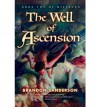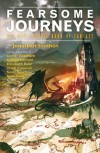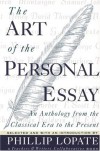Mining the Depths
I'll read almost anything and love what captures my imagination. Best of all is responding to books in the larger cultural sense, loving or loathsome. Literature should have a place in the wider world.
And I'm another GoodReads refugee.
 Be warned. This book has no literary merit whatsoever.These first words, both on the front flap and front page, are the reason I picked up The Somnambulist and raised my hopes.Unfortunately, those hopes were dashed.What with such a promising voice and the subject matter--Victoriana, such possibilities!--I expected a lot more...exuberance, I think is the word. Instead, despite the promise of "no literary merit", it's written in a literary style. Which, quite frankly, isn't very Victorian or pulp. The title is misleading too. Yes, there is "the Somnambulist" but he was more a Chekhov's gun than a character. He was introduced early, and brought back in the last few pages, but for the most part entirely forgotten in the middle.Actually, the middle was just about a turning point. Barnes had a fairly interesting story set up in the beginning, and then the book just seemed to lose focus. Large casts can be interesting, but this book should have been Moon's story, and the Somnabulist should have had a reason for being there other than the Deus ex Machina. So character after character just kept being introduced, far too late for a reader to truly care, and only in time to confuse the plot and weaken the sense of suspense.What's almost worse is that Barnes kept lampshading these weaknesses:They were in a bubble there, the giant thought, far removed from the world outside, and on hearing Gillman speak, he felt as though someone's else's story, some other narrative, were impinging itself, suddenly and without warning, upon there own.Well, I for one, couldn't keep track of which story was actually being told. I often enjoy metafictional devices, but here it felt they were only used to highlight the story's weaknesses, those I was trying to ignore.The narrative structure also distracted from the story. Complicated narrative voices can work, but this has a first person narrator telling a story in third person; not, ostensibly, about Moon, the first character (who's not a corpse-in-waiting) we meet, or the Somnambulist, who only occasionally gets a POV, or even the narrator--though I think at the end we're supposed to think so. Given the early set up--the narrator, Moon, and the Somnambulist, suddenly around chapter 10 and to the end, another half dozen characters all get POV time.And while I found the narrator occasionally amusing--after the first chapter, I did laugh once or twice, the big reveal of his identity left me cold. At that point, I knew it wasn't any POV character so far, nor any of the previous 'big three', so I knew it was going to be just another character. And after the reveal, the story lost most of it's momentum and immediacy, which is a shame because that's when most of the action actually happened, not to mentioned the horror. A child is found beaten to death, and it was dull. And the narrator was just obnoxious, rather than amusing.There were plenty of well-placed elements of the grotesque that added to the atmosphere. Ms. Puggsley's, was a fantastic invention. Barnes did a good job with the female character, letting them be characters, and none of them were just what they should be as females. Unfortunately, none of them were particularly significant characters, though Charlotte should have been. "Curious, is it not, how it is often the worst sceptics and bitterest cynics who become the most zealous of us all" And the transition of that character's story mostly works, though we don't see it.Speight's sign though...if you don't see that coming...but his character was actually well done--like the canary in the coal mine. He's well done in that it's subtly doneNow, The Somnambulist is well written, but somehow I felt that it held the work back. Earlier, I said it should have been exuberant. The Somnambulist can't be human! Moon is past his prime, but London is going to be destroyed! Why all the literary sophistication, when 1) the narrator is "without any ability to enthral the reader, to beguile with narrative tricks"; and 2) it's too slow for the subject. It's supposed to play with the ideas of Doyle (which is explicitly pointed out in the text), Poe, Wilke Collins and even Mary Shelley--at least according to one of the blurbs. By rights, it ought to be a little fun.This is undoubtedly because it was a stylistic choice--fair warning, at the end the narrator tells the story behind the story: I feel sure that my skill has grown with the tale's telling and I am concerned that the opening sections must seem amateurish and crude in comparison with later chapters. I have repeatedly asked if I might not be allowed the complete manuscript, if only for an hour or two, so that I might make some revisions and clarifications from which the work can only benefit. To date, they have denied my every requestBut I can't enjoy literary posturing just for the sake of literary posturing. Metafiction can be fun, but only when there's enough of a story to rest on.
Be warned. This book has no literary merit whatsoever.These first words, both on the front flap and front page, are the reason I picked up The Somnambulist and raised my hopes.Unfortunately, those hopes were dashed.What with such a promising voice and the subject matter--Victoriana, such possibilities!--I expected a lot more...exuberance, I think is the word. Instead, despite the promise of "no literary merit", it's written in a literary style. Which, quite frankly, isn't very Victorian or pulp. The title is misleading too. Yes, there is "the Somnambulist" but he was more a Chekhov's gun than a character. He was introduced early, and brought back in the last few pages, but for the most part entirely forgotten in the middle.Actually, the middle was just about a turning point. Barnes had a fairly interesting story set up in the beginning, and then the book just seemed to lose focus. Large casts can be interesting, but this book should have been Moon's story, and the Somnabulist should have had a reason for being there other than the Deus ex Machina. So character after character just kept being introduced, far too late for a reader to truly care, and only in time to confuse the plot and weaken the sense of suspense.What's almost worse is that Barnes kept lampshading these weaknesses:They were in a bubble there, the giant thought, far removed from the world outside, and on hearing Gillman speak, he felt as though someone's else's story, some other narrative, were impinging itself, suddenly and without warning, upon there own.Well, I for one, couldn't keep track of which story was actually being told. I often enjoy metafictional devices, but here it felt they were only used to highlight the story's weaknesses, those I was trying to ignore.The narrative structure also distracted from the story. Complicated narrative voices can work, but this has a first person narrator telling a story in third person; not, ostensibly, about Moon, the first character (who's not a corpse-in-waiting) we meet, or the Somnambulist, who only occasionally gets a POV, or even the narrator--though I think at the end we're supposed to think so. Given the early set up--the narrator, Moon, and the Somnambulist, suddenly around chapter 10 and to the end, another half dozen characters all get POV time.And while I found the narrator occasionally amusing--after the first chapter, I did laugh once or twice, the big reveal of his identity left me cold. At that point, I knew it wasn't any POV character so far, nor any of the previous 'big three', so I knew it was going to be just another character. And after the reveal, the story lost most of it's momentum and immediacy, which is a shame because that's when most of the action actually happened, not to mentioned the horror. A child is found beaten to death, and it was dull. And the narrator was just obnoxious, rather than amusing.There were plenty of well-placed elements of the grotesque that added to the atmosphere. Ms. Puggsley's, was a fantastic invention. Barnes did a good job with the female character, letting them be characters, and none of them were just what they should be as females. Unfortunately, none of them were particularly significant characters, though Charlotte should have been. "Curious, is it not, how it is often the worst sceptics and bitterest cynics who become the most zealous of us all" And the transition of that character's story mostly works, though we don't see it.Speight's sign though...if you don't see that coming...but his character was actually well done--like the canary in the coal mine. He's well done in that it's subtly doneNow, The Somnambulist is well written, but somehow I felt that it held the work back. Earlier, I said it should have been exuberant. The Somnambulist can't be human! Moon is past his prime, but London is going to be destroyed! Why all the literary sophistication, when 1) the narrator is "without any ability to enthral the reader, to beguile with narrative tricks"; and 2) it's too slow for the subject. It's supposed to play with the ideas of Doyle (which is explicitly pointed out in the text), Poe, Wilke Collins and even Mary Shelley--at least according to one of the blurbs. By rights, it ought to be a little fun.This is undoubtedly because it was a stylistic choice--fair warning, at the end the narrator tells the story behind the story: I feel sure that my skill has grown with the tale's telling and I am concerned that the opening sections must seem amateurish and crude in comparison with later chapters. I have repeatedly asked if I might not be allowed the complete manuscript, if only for an hour or two, so that I might make some revisions and clarifications from which the work can only benefit. To date, they have denied my every requestBut I can't enjoy literary posturing just for the sake of literary posturing. Metafiction can be fun, but only when there's enough of a story to rest on.
Currently reading
The Well of Ascension
Progress:
325/781 pages
Steelheart
Progress:
26 %
Fearsome Journeys: The New Solaris Book of Fantasy
Progress:
57/395 pages
Dracula
The Guermantes Way
The Art of the Personal Essay: An Anthology from the Classical Era to the Present
Mad Ship
Pitch Like A Girl: How A Woman Can Be Herself And Still Succeed
A History of Pi
English Creek












